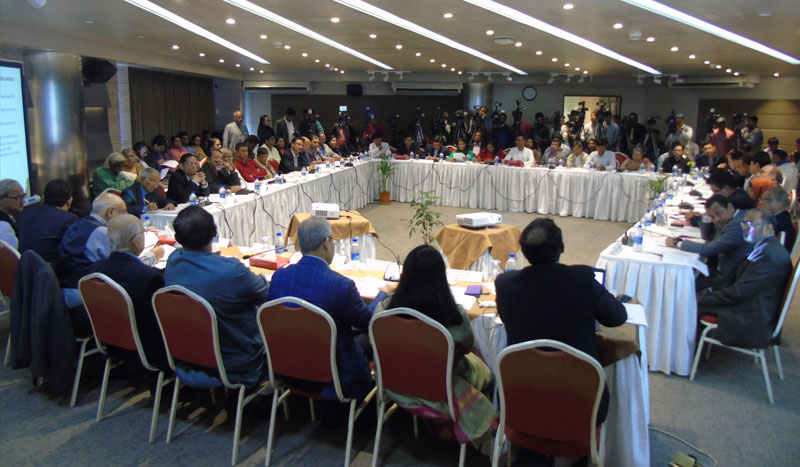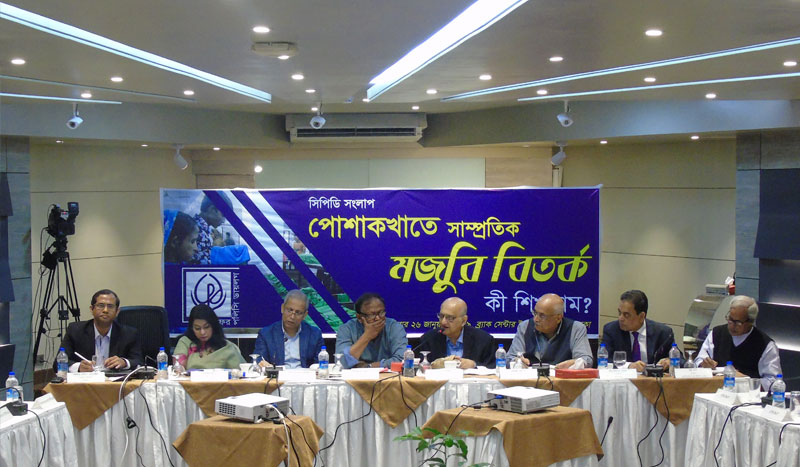
The Ready Made Garment (RMG) sector requires collective action from all the stakeholders to implement new wage that is to be in action from 2019. In spite of its’ paramount importance in Bangladesh’s economy RMG sector has witnessed several workers’ unrest. After the announcement of new wage in November 2018 the last labor unrest took place during December 2018 to January 2019 with the demand for addressing several concerns related to new minimum wages. Entrepreneurs, workers and government need to work collectively to solve the problem.
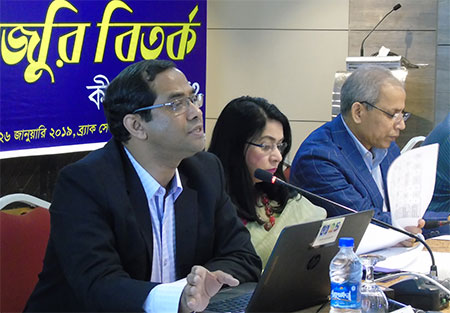 CPD shared this field investigation based analysis in a dialogue titled “Recent Wage Debates in the Garments Sector: What Did We Learn?” on Saturday 26 January 2019 at BRAC Centre Inn Auditorium, Dhaka. Professor Rehman Sobhan, Chairman, CPD, chaired the event as Mr Tipu Munshi, Hon’ble Minister for Commerce, Government of Bangladesh, was the chief guest. Dr Fahmida Khatun, Executive Director, CPD welcomed the guests and participants of the event. Dr Khondaker Golam Moazzem, CPD’s Research Director was the keynote presenter and CPD’s Distinguished Fellow Dr Debapriya Bhattacharya moderated the dialogue.
CPD shared this field investigation based analysis in a dialogue titled “Recent Wage Debates in the Garments Sector: What Did We Learn?” on Saturday 26 January 2019 at BRAC Centre Inn Auditorium, Dhaka. Professor Rehman Sobhan, Chairman, CPD, chaired the event as Mr Tipu Munshi, Hon’ble Minister for Commerce, Government of Bangladesh, was the chief guest. Dr Fahmida Khatun, Executive Director, CPD welcomed the guests and participants of the event. Dr Khondaker Golam Moazzem, CPD’s Research Director was the keynote presenter and CPD’s Distinguished Fellow Dr Debapriya Bhattacharya moderated the dialogue.
The field work report has shed light on ten particular issues related to the current wage debates. The first and foremost is the ignored minimum compliance issue. Lack of information and awareness among the workers regarding wage, discriminative appreciation between workers of different locations and grades, non-wage related measures for workers’ livelihood challenges are some of other points. Apart from these, the field investigation also put emphasise on the importance of involvement of brand buyers and consumers in the implementation process and on the socio-economic condition of the workers. And the variation of level of enforcement of wage 2018 based on size and location of enterprises is also of great importance.
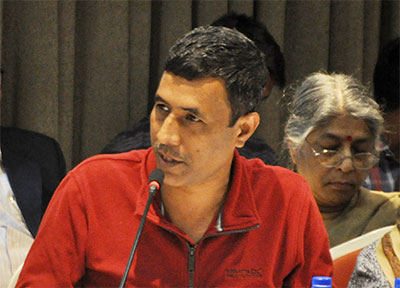 CPD’s distinguished fellow Dr Debapriya Bhattacharya said that the current wage debate should be understood from a combination of three aspects—challenges of wage implementation, structural readjustment and extra expense due to wage increase.
CPD’s distinguished fellow Dr Debapriya Bhattacharya said that the current wage debate should be understood from a combination of three aspects—challenges of wage implementation, structural readjustment and extra expense due to wage increase.
Most of the discussants opined that some innocent workers are being harassed. They also added that workers are not well-informed about the structure and changes in wage. Specially, the female workers are more ignorant. Besides, minimizing communication gap between owners and workers was also highlighted. Most importantly, it was suggested that government needs to support the RMG workers by providing rationed food support and subsidy in education, medical service etc. as livelihood expenditures increase with wage.
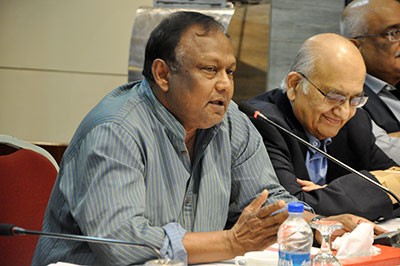 Hon’ble Minister Tipu Munshi recommended collective effort for proper implementation of the wage and other RMG problems. He also urged the owners to be more compassionate towards the workers.
Hon’ble Minister Tipu Munshi recommended collective effort for proper implementation of the wage and other RMG problems. He also urged the owners to be more compassionate towards the workers.
In a remark Professor Rehman Sobhan said that for smooth execution of the process commitment is needed from buyers and the world market.
Advocate Montu Ghosh emphasised on the necessity of freedom of expression and trade union rights of the workers while he mentioned that workers are not well acquainted of organised demonstration.
Mr Md Shafiul Islam (Mohiuddin), President, Federation of Bangladesh Chambers of Commerce and Industry (FBCCI) graced the event as special guest. President of Bangladesh Garment Manufacturers and Exporters Association (BGMEA) Mr Md Siddiqur Rahman and President of Garments Workers’ Trade Union Centre Advocate Montu Ghosh were the guests of honour of the dialogue.
The floor comprising government officials, development partners, RMG factory owners, labour leaders, academicians, economists, researchers, journalists, diplomats among others actively participated and enlightened the dialogue. Journalists from the digital and print media were also present at the event.
